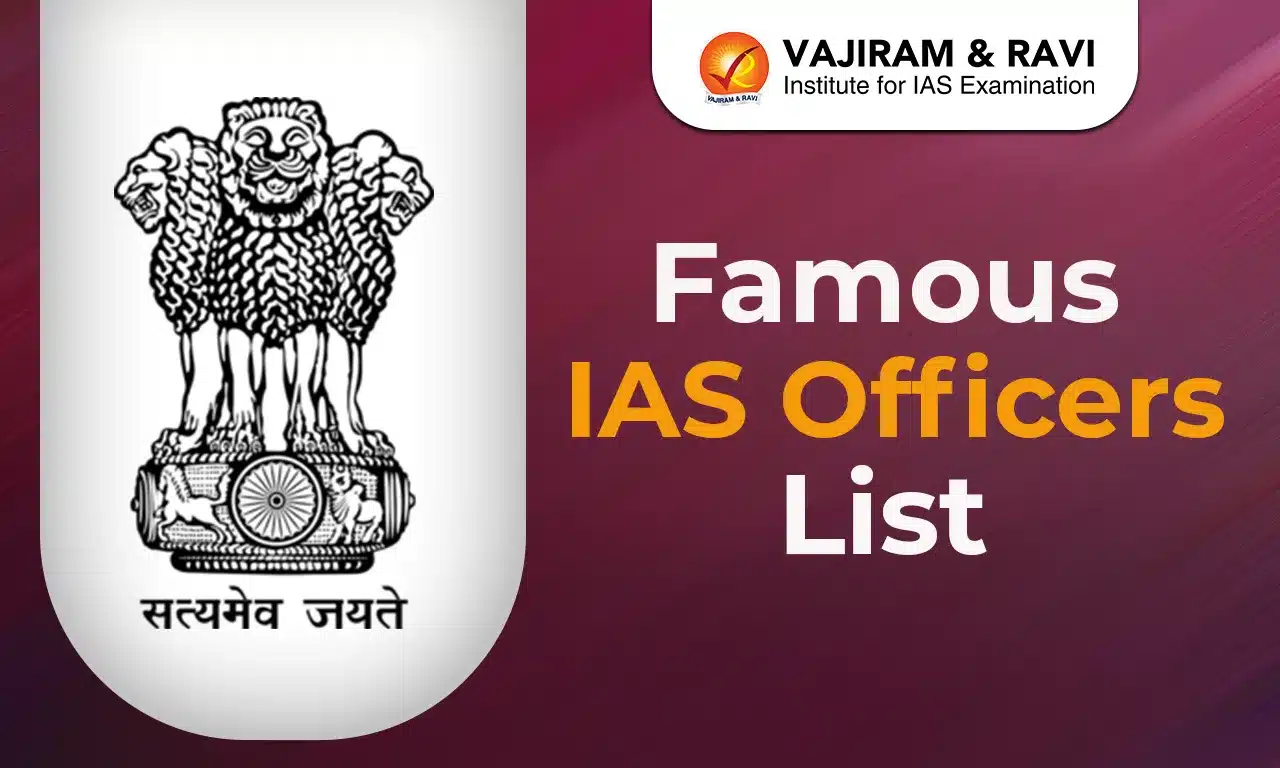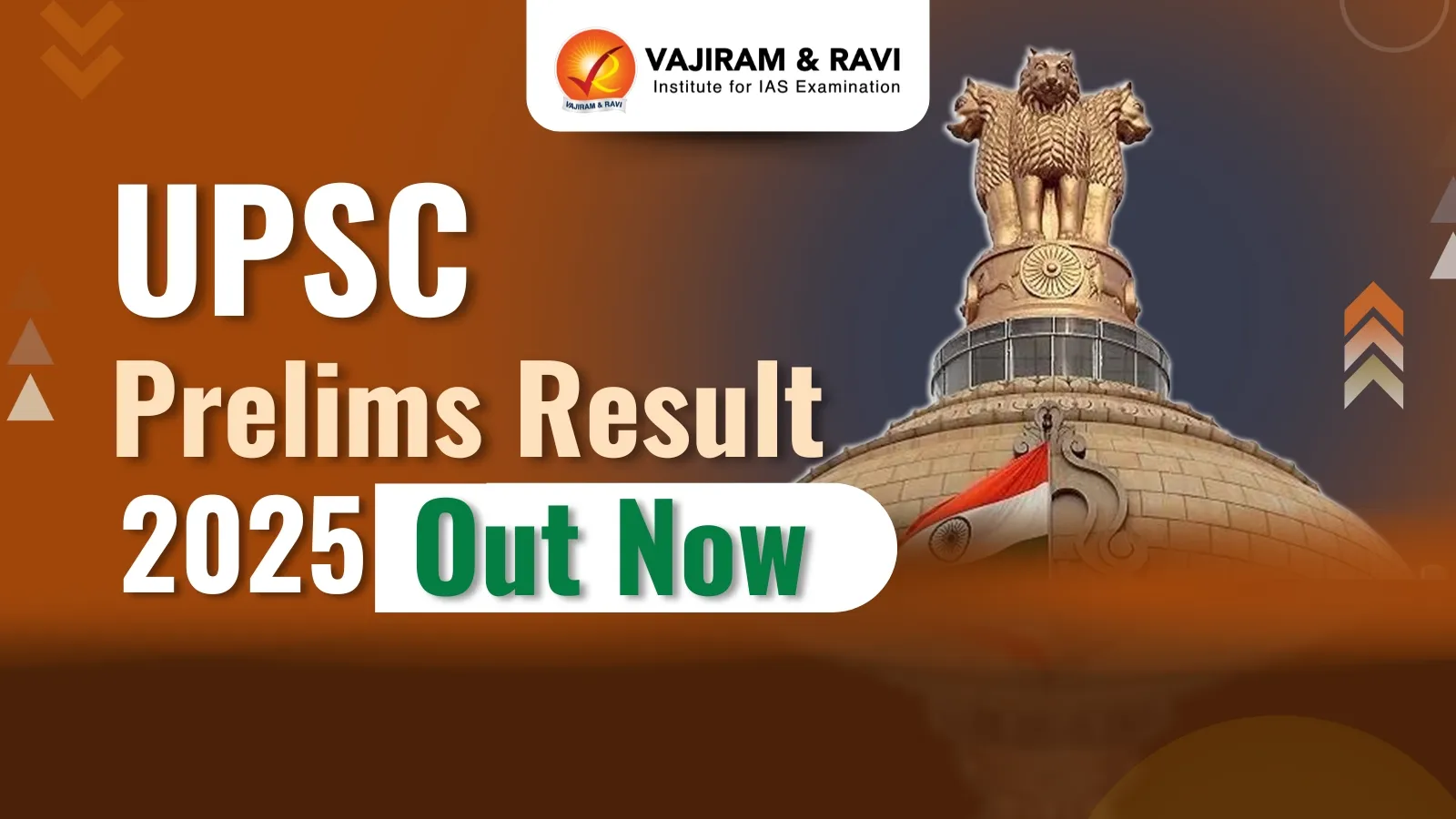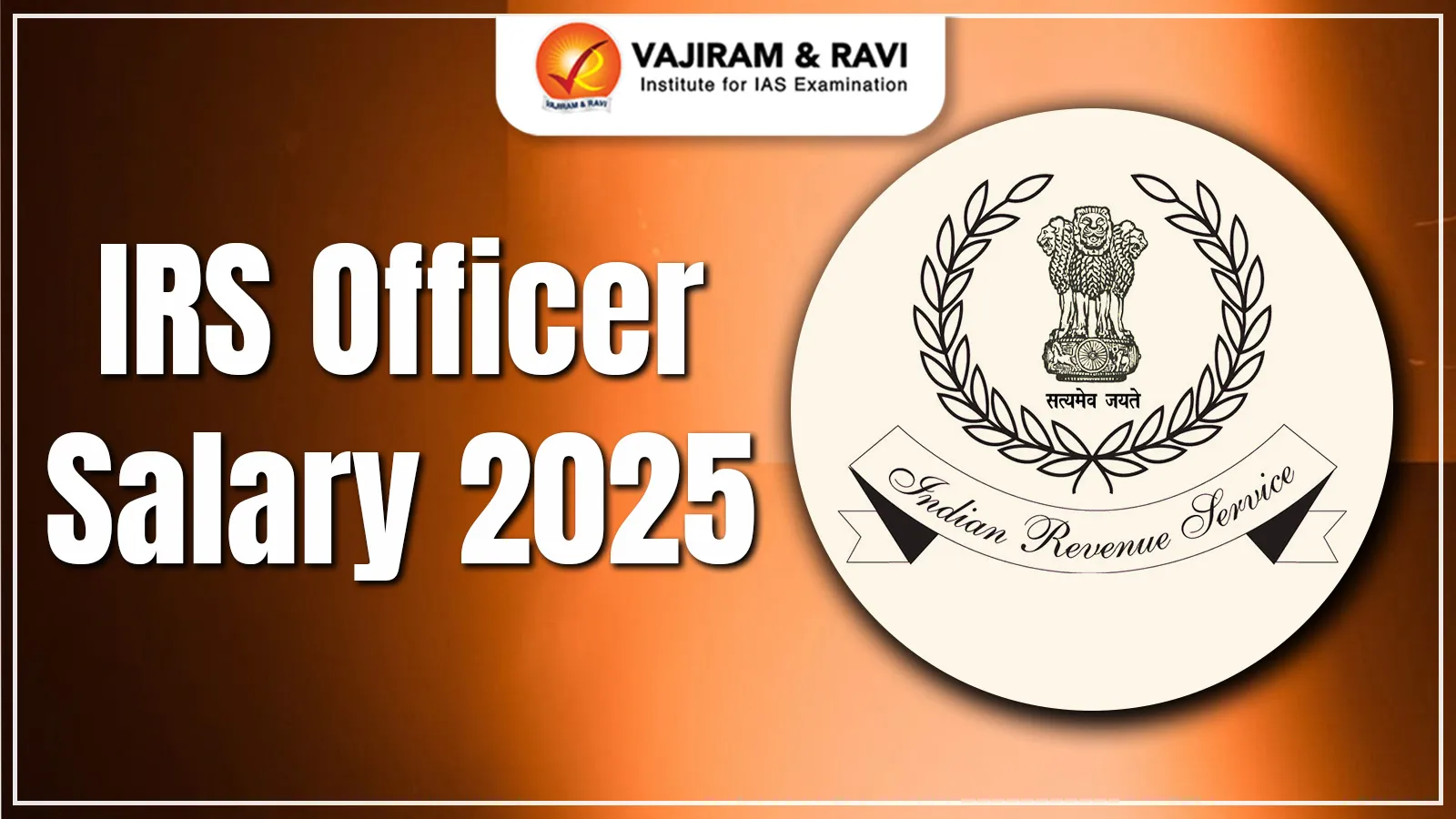Famous IAS officers have left an indelible mark on the Indian administrative landscape, showcasing exceptional dedication, integrity, and leadership. Some of the popular names included in the list of famous IAS Officers in India are Dr. Raju Narayana Swamy, Aruna Sundararajan, Smita Sabharwal, Armstrong Pame, Durga Shakti Nagpal, etc. These individuals often rise to prominence due to their remarkable contributions to society, governance, and public welfare.
These IAS officers often become change-makers, driving innovations and reforms that lead to lasting improvements in society. Their ability to adapt to diverse challenges and navigate complex bureaucracies makes them essential pillars of India’s administrative system.
List of Top 10 Famous IAS Officers in India
Many IAS officers have risen to prominence for their innovative approaches to problem-solving and their ability to navigate complex bureaucratic systems. Their dedication to public service has resulted in the successful implementation of government policies and programs, directly impacting the lives of millions of citizens. Below, we have mentioned the brief details about the top 10 famous IAS Officers in India who have become a source of inspiration for all UPSC aspirants.
Dr. Raju Narayana Swamy
Dr. Raju Narayana Swamy is an IAS officer well-known for standing up against corruption. He strongly opposes illegal land dealings, real estate business, and political corruption, especially when he sees things as unfair. The common people strongly support him for his efforts.
He became famous during his time as the District Collector of Idukki. He took a strong stance by demolishing unauthorised resorts in Munnar, leading to a Minister’s resignation. This action was praised by the people of Kerala. Dr. Raju’s success as a civil servant grew over the years because he focused on using technology for public service and transparent governance. He actively engaged with the people in various positions he held.
Born into a middle-class family in Ulloor, Thiruvananthapuram in 1968, Mr. Swamy grew up in an academic environment with both his parents as professors. With no lack of inspiration at home and heightened interest in academics, he excelled in studies throughout his school days and received many accolades. He stood first in the State of Kerala in SSLC (1983) AND FIST IN University in Pre- degree (1985). In 1989, he obtained a B.Tech. in Computer Science from IIT Madras and ranked first. Despite a full scholarship from the Massachusetts Institute of Technology (MIT), he decided to build a career in Civil Services. He opted for mathematics and physics, two of his favourite subjects. He secured all India first rank in Civil Services Examination 1990 and joined the Kerala Cadre.
- In 2018, IIT Kanpur conferred upon Mr. Swamy, the prestigious Satyendra K Dubey Memorial Award for maintaining highest professional integrity and honesty while serving his duty.
- In his administrative career, he has held several key portfolios including District Collector of five districts, Agriculture Production Commissioner and Principal Secretary (Agriculture), Kerala Government; Director of Fisheries and of Collegiate Education; Managing Director of Marketing Federation; and Commissioner in the Civil Supplies Department.
- His anti-corruption drives have earned him many accords, for instance, he was felicitated with the Fourth IRDS award from the Institute for Research and Documentation in Social Sciences (IRDS), a Lucknow based civil society.
- He was also the Chairman of Coconut Development Board, Govt of India.
- He is also an Election Specialist, having been deputed for 36 elections in 17 states across the country apart from being an international observer for the 2018 Zimbabwe Elections.
- Despite facing challenges with job transfers, he found comfort in writing. He wrote 32 books, and his writings are as powerful as his image and are rooted in certain values..
- His most popular work is “Nano Muthal Nakshatram Vare.” He won the Kerala Sahitya Akademi Award for his travelogue Santhimantram Muzhangunnu Thazhvarayil. For children’s literature, he was awarded the Bhim Gold Medal and Kunjunni Awards.
- Mr. Swamy has a quest for knowledge and treats learning as a game. He holds a post-graduate diploma in IPR from the National Law School, Bengaluru; a professional diploma in Public Procurement from the World Bank; two doctorate degrees and the prestigious Homi Bhabha Fellowship in Cyber law.
Aruna Sundararajan
Aruna Sundararajan is a renowned IAS officer known for her exceptional contributions to the administrative landscape of India. Born on November 2, 1958, she has had a distinguished career marked by her dedication, innovative thinking, and commitment to public service.
- Aruna Sundararajan is a 1982 batch IAS officer from the Kerala cadre.
- She holds a master’s degree in economics from the Delhi School of Economics.
- Throughout her career, she has been recognised for her strategic thinking and problem-solving abilities.
- Aruna Sundararajan has received numerous awards and accolades for her contributions to the field of public administration.
- She is known for her collaborative approach to working with various stakeholders, including government agencies, the private sector, and civil society, to achieve developmental goals.
- Aruna Sundararajan’s tenure as the Secretary of the Department of Telecommunications saw the successful implementation of policies aimed at enhancing broadband connectivity and digital infrastructure in rural areas.
- She has been a strong advocate for women’s empowerment and gender equality, consistently promoting women’s participation in the workforce.
- Aruna Sundararajan’s leadership in the Indian Administrative Service has left a lasting impact on India’s telecommunications and digital sectors, contributing significantly to the country’s growth and development.
Armstrong Pame
Hailing from the northeastern state of Manipur in India, Armstrong Pame’s journey as a civil servant has been marked by his unwavering commitment to improving the lives of his fellow citizens, particularly those in remote and underprivileged areas.
- Armstrong Pame is an accomplished IAS officer hailing from the northeastern state of Manipur.
- He was born on November 8, 1982, in Tousem, a remote tribal village in Manipur.
- Pame pursued his education diligently and secured the 14th rank in the prestigious Civil Services Examination conducted by UPSC in 2009.
- After joining the IAS, he was posted in various administrative positions, where he continued to focus on community development and improving the lives of marginalised communities.
- His most famous achievement is the construction of a 100-kilometer road to connect Tousem, his native village, to the rest of the region. This project significantly improved accessibility for the villagers and brought much-needed development to the area.
- Pame’s remarkable initiative earned him accolades and recognition, including the People of the Year award from CNN-IBN in 2012.
- He has been an advocate for sustainable development and environmental conservation, emphasising the importance of preserving the natural beauty and resources of the region.
- In addition to his administrative work, Armstrong Pame is an inspirational speaker who motivates young people to pursue careers in civil services and community development.
- He continues to be an exemplary figure, demonstrating how individuals can make a profound impact on their communities through dedication, hard work, and a deep sense of social responsibility.
Smita Sabharwal
Born on June 19, 1977, in Hyderabad, India, Smita Sabharwal made history by becoming the youngest IAS officer to be appointed to the cadre of the Andhra Pradesh Cadre at the age of 23. One of her most notable achievements has been her role in transforming the Karimnagar district of Telangana. Under her leadership, the district witnessed significant improvements in areas such as education, healthcare, and women’s empowerment. She introduced innovative initiatives like “Smart Village, Smart Ward,” aimed at holistic development and improving the quality of life in rural areas.
- She holds a Master’s degree in Economics from the Delhi School of Economics.
- Over the years, she served in various key administrative positions, including as the Additional Collector and Joint Collector of several districts.
- Smita Sabharwal is known for her tireless efforts in improving education infrastructure and access in the areas she has served.
- She introduced several innovative initiatives to promote women’s empowerment and gender equality.
- As a District Collector, she initiated programs aimed at enhancing the livelihoods of marginalized communities and addressing environmental issues.
- Smita Sabharwal’s tenure as the Collector of Karimnagar district in Telangana saw significant improvements in healthcare services and public welfare.
- She has been a strong advocate for transparency, accountability, and efficient governance throughout her career.
- Smita Sabharwal’s dedication to public service has earned her numerous awards and accolades, including the “Nari Shakti Puraskar” by the President of India for her contributions to women’s empowerment.
- Her remarkable journey from a young IAS officer to a prominent symbol of dedicated and transformative public service continues to inspire many aspiring civil servants.
Ashok Khemka
Ashok Khemka was born on April 1, 1965, in Haryana, India, Khemka’s career has been marked by his relentless pursuit of justice and accountability in the Indian bureaucracy.
One of the defining moments in Ashok Khemka’s career came in 2012 when, as Director General of Land Records in Haryana, he brought attention to alleged irregularities in land dealings involving influential politicians and real estate developers. His decision to cancel a land deal involving Robert Vadra, the son-in-law of a prominent political figure, raised significant controversy and made him a symbol of bureaucratic courage.
- Ashok Khemka was born on April 1, 1965, in Nara village, Haryana, India.
- He belongs to the 1991 batch of the Indian Administrative Service (IAS).
- Throughout his career, Khemka has held several key positions in the Haryana government, including Director General of Land Records and Inspector General of Registration.
- Khemka holds a master’s degree in Economics from the University of Delhi and a master’s degree in International Development from Harvard University.
- He has been a vocal advocate for transparency, accountability, and land reform in India.
- His efforts have often resulted in controversy, multiple transfers, and legal battles, but he has remained steadfast in his commitment to ethical governance.
- Ashok Khemka’s courageous stance has garnered him both praise and criticism but has made him a symbol of integrity in the Indian bureaucracy.
- Despite the challenges he has faced, Khemka continues to serve in the Indian Administrative Service, exemplifying the principles of honesty and dedication in public service.
Ira Singhal
Ira Singhal’s story is especially noteworthy because she overcame a significant physical disability to achieve her dream of becoming an IAS officer. Despite being affected by scoliosis, a spinal cord disorder, she refused to let her condition define her limitations. In 2015, she secured the All India Rank 1 in the UPSC Civil Services Examination, becoming the first differently-abled woman to achieve this prestigious feat.
- Ira Singhal was born on October 31, 1983, in Delhi, India.
- She pursued her education at Delhi University, where she completed her B.E. in Computer Engineering.
- Prior to her IAS journey, Ira worked as a software engineer at Cadence Design Systems.
- Ira Singhal’s determination and success in securing the top rank in the UPSC Civil Services Examination in 2015 made her a symbol of empowerment for people with disabilities.
- She holds a Master’s degree in Public Administration from the Harvard Kennedy School.
- Ira has been an advocate for inclusive policies and equal opportunities for people with disabilities in India.
- Her achievements have not only broken barriers but have also encouraged a more inclusive approach in the Indian bureaucracy.
U. Sagayam
One of the most notable instances of Sagayam’s unique approach was his decision to auction seized luxury cars that were involved in tax evasion cases. Instead of letting these vehicles gather dust in government warehouses, he organised public auctions, turning them into a symbol of transparency and accountability in the administration.
- U. Sagayam, born in 1962 in Tamil Nadu, India, is a 1991 batch IAS officer.
- He gained recognition for his unconventional and determined methods to combat corruption in the bureaucracy.
- Sagayam is known for his simplicity and frugality in his personal life, reflecting his commitment to transparency and ethical values.
- He has consistently refused to use government vehicles with red beacons, signalling a rejection of VIP privileges.
- He has been transferred multiple times during his career, often seen as a result of his anti-corruption crusades.
- Apart from his anti-corruption work, Sagayam has actively promoted education and environmental conservation.
- His dedication to cycling to work as a sustainable transportation choice has been both symbolic and practical.
Anna Rajam Malhotra
Anna Rajam Malhotra’s entry into the IAS in 1951 shattered gender barriers at a time when women’s participation in the civil services was uncommon. Her appointment paved the way for future generations of female civil servants in India.
- Anna Rajam Malhotra was born on July 17, 1927, in Niranam, Kerala, India.
- She secured the first rank in the first-ever IAS examination in 1950, becoming the first female IAS officer in India.
- Her pioneering entry into the IAS was a significant milestone for gender equality and women’s empowerment in India.
- During her tenure as a civil servant, she played a pivotal role in various administrative positions, including District Magistrate, Deputy Secretary in the Ministry of Commerce, and Education Secretary.
- Anna Rajam Malhotra was known for her commitment to improving the education system and social welfare programs, particularly for the underprivileged and marginalised communities.
- She also served as the Chief Secretary of the state governments of both Kerala and Tamil Nadu.
- Anna Rajam Malhotra’s exemplary career has inspired countless women to pursue careers in the civil services and break gender barriers.
Her legacy continues to be celebrated as a symbol of women’s empowerment and equality in the Indian bureaucracy.
Last updated on June, 2025
→ UPSC Notification 2025 was released on 22nd January 2025.
→ UPSC Prelims Result 2025 is out now for the CSE held on 25 May 2025.
→ UPSC Prelims Question Paper 2025 and Unofficial Prelims Answer Key 2025 are available now.
→ UPSC Calendar 2026 is released on 15th May, 2025.
→ The UPSC Vacancy 2025 were released 1129, out of which 979 were for UPSC CSE and remaining 150 are for UPSC IFoS.
→ UPSC Mains 2025 will be conducted on 22nd August 2025.
→ UPSC Prelims 2026 will be conducted on 24th May, 2026 & UPSC Mains 2026 will be conducted on 21st August 2026.
→ The UPSC Selection Process is of 3 stages-Prelims, Mains and Interview.
→ UPSC Result 2024 is released with latest UPSC Marksheet 2024. Check Now!
→ UPSC Toppers List 2024 is released now. Shakti Dubey is UPSC AIR 1 2024 Topper.
→ Also check Best IAS Coaching in Delhi
Famous IAS Officers FAQs
Q1. What makes IAS Officers famous?+
Q2. Who are the Famous Female IAS Officers in India?+
Q3. What are some popular names included in the list of famous IAS Officers?+





























